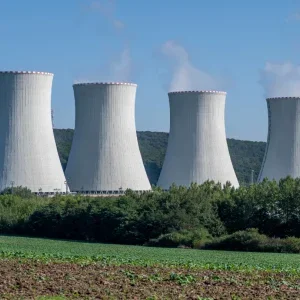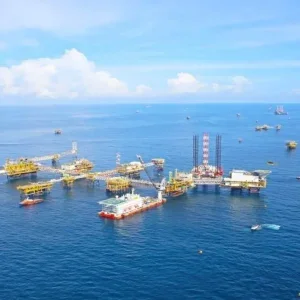Indonesia is interested in cooperating with Russia on the construction of floating NPPs (FNPPs) for Indonesia, according to the Russian ambassador to Indonesia, Jauhari Oratmangun.
Oratmangun said negotiations were conducted between the representatives of Russian state nuclear corporation Rosatom and the National Atomic Energy Agency of Indonesia (Batan) on such cooperation. "There were reciprocal visits: specialists and managers Batan visited Moscow and Rosatom delegation visited Indonesia. The meeting resulted in a signed document of intent." As to timing of the construction of FNPPs, he said that would dependent on subsequent agreements between the two agencies and agreements with the private companies that will be involved in the project.
Oratmangun stressed that the issue nuclear power "is still very sensitive in Asia as a whole", and the government of Indonesia should first convince the population that "implementation of such projects is necessary and beneficial for the production of cheap electricity and peaceful." However, Moscow and Jakarta are already developing cooperation on nuclear energy. In April, a Russian-Indonesian consortium won the tender for the preliminary design of a nuclear research reactor for Indonesia, which will be the basis of Indonesia’s nuclear power programme.
Also in August, an International Atomic Energy Agency (IAEA) Integrated Regulatory Review Service (IRRS) team completed a 12-day mission to Indonesia and identified a number of good practices.
Indonesia is making good progress towards building the regulatory framework needed for the potential launch of a nuclear power programme, the team of experts concluded. It said Indonesia, through its Nuclear Energy Regulatory Agency (Bapeten), "is implementing a framework that provides for the protection of public health and safety". The IRRS team recommended that the government should develop "a national policy and strategy for safety, supported by a coordinated national action plan". The team also said Bapeten should be provided "with sufficient human and financial resources to ensure it can adequately fulfil its regulatory obligations."
Team leader Carl-Magnus Larsson who is also the CEO of the Australian Radiation Protection and Nuclear Safety Agency, said the results from the mission will help the government prioritise work that can help Indonesia achieve its goals related to nuclear and radiation safety." Batan operates three research reactors and a number of nuclear fuel cycle facilities, as well as facilities that use radioactive sources in medicine and industry.






